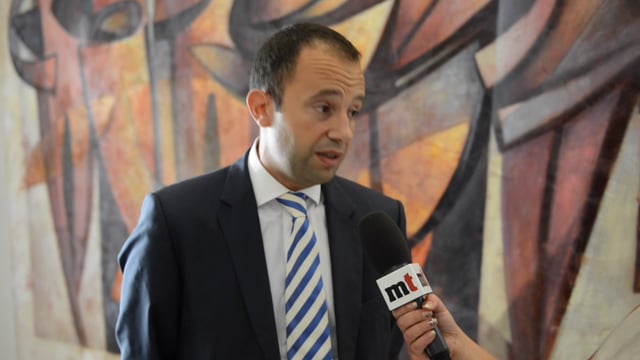Update 2 | Third set of tests confirm concrete of inferior quality used at A&E
PN calls for urgent Parliamentary debate over alleged structural flaws at Mater Dei's accident and emergency department • Government wants political, technical and commercial responsibility to be shouldered


A third set of tests carried out on concrete structures at Mater Dei's Accident and Emergency deparment have confirmed that concrete used on certain pillars was not strong enough, due to material of inferior quality used.
In a statement, the government announced that temporary works will kick off in the coming days to mitigate any risks that could arise from the weak structures.
The works include the setting up of temporary structures to solidify the pillars. The works will be carried out this week.
The Nationalist Party today called for an urgent Parliamentary debate over the alleged structural flaws at Mater Dei Hospital.
Tests carried out at Mater Dei show that the concrete structures over the accident and emergency department are so weak they cannot withstand the weight of two planned medical wards. Health Minister Konrad Mizzi was quoted as saying that the quality of the concrete in some parts of the hospital is “significantly below standards and extremely weak in certain areas”. In another statement, Mizzi said that “the concrete that was used in certain columns was not strong enough and of inferior quality”.
The government will also be setting up an external board of inquiry to establish the facts and timeline of events.
The board will be analysing criminal and civil liabilities resulting from the incident as well as cooperating and passing on any relevant information to the Police. Technical experts will be appointed.
“This is part of the government’s work to establish the facts of what could have occurred in the past during the building of Accident and Emergency section at Mater Dei Hospital,” the Ministry for Health said.
“The government will also be asking for responsibility to be shouldered, be it political, technical and commercial.”
A site survey of the Emergency Department and analysis of the whole hospital will be carried out and discussions are already underway to appoint a foreign company specialising in the sector.
The government said works to identify a new site are already underway as not to lose any EU funds allocated for the construction of new wards.
“The government will keep on keeping both the public and unions informed of the situation. The security of patients and workers is of utmost priority and both Health Minister Konrad Mizzi and parliamentary secretary Chris Fearne are committed to take responsible decisions based on information being collected.”
PN call for Parliamentary probe
The Opposition has now officially requested an urgent debate within the Parliamentary Health Policy Committee to verify the veracity of the allegations.
The letter, signed by the opposition members Claudio Grech and Michael Gonzi, is addressed to Health Committee chairman Etienne Grech.
“We do not yet know whether there are problems with the structure itself or whether it simply cannot bear the weight of additional structures built over it,” the MPs said, adding that the accident and emergency departments were not originally designed to sustain the pressure of additional buildings built over them.
“This level of uncertainty can reduce the faith of the patients who require the services of these departments and create additional stress for the hospital workers.”
“If there are problems with the hospital’s structure, then it should not be considered a matter of political opinion,” the MPs said. “It is a technical fact based on whether the building’s quality conforms with its original intentions”.
The MPs said that “if the allegations are true, then the lives of patients and workers at Mater Dei could be at risk.”
“Under no circumstances should patients and hospital workers be exposed to health and safety risks.”






.jpg)
















